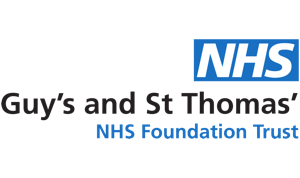Addressing NHS Challenges Through Innovations in Soft Facilities Management
The NHS faces an array of challenges as it strives to provide world-class healthcare under increasing pressure. From managing limited resources to meeting high expectations for safety and hygiene, the role of Soft Facilities Management (Soft FM) has become more critical than ever. Services like portering, cleaning, waste management, and catering may operate in the background, but their impact on patient care and operational efficiency is profound.
With ongoing challenges such as staff shortages, rising operational demands, and limited budgets, Soft FM represents an area where innovation can directly support the NHS in delivering its core mission.
The NHS Challenges in Soft FM
Soft FM encompasses the managing of essential non-clinical services that ensure healthcare environments are safe, hygienic, and operationally efficient. However, many challenges prevent these services from performing optimally.

Portering: The Backbone of Patient Flow
Portering services are vital for maintaining patient flow and managing critical tasks such as transporting patients, delivering medical supplies, and moving equipment. Despite their importance, portering teams face significant obstacles:
- High Demand: In acute settings, porters handle hundreds of requests daily, ranging from transferring patients to X-ray rooms to delivering life-saving oxygen supplies.
- Inefficient Task Allocation: Traditional methods, such as manual scheduling, create delays and reduce responsiveness. For example, porters may not always be dispatched based on their proximity or availability, leading to longer wait times.
- Understaffing: The NHS’s resource constraints often leave portering teams stretched too thin, causing delays that directly impact patient care and staff workload.
Expert Insight:
“Inefficiencies in portering services can ripple across the entire hospital,” explains Ian Johnson, our Micad FM Product Owner who previously spent 14 years working in and with NHS Teams getting software implemented to improve service delivery.
“When patients or critical equipment aren’t moved promptly, it can delay care and add pressure to already overburdened clinical teams.”
-

Ian Johnson, Micad FM Product Owner
He continues. “Cleaning teams are the unsung heroes of patient safety,” says Ian Johnson. “But without proper support, they can’t keep up with demand. The challenge is balancing speed with the level of thoroughness required to prevent infection risks.”
Cleaning and Hygiene: The First Line of Defence Against Infections
Maintaining a clean and hygienic environment is essential in preventing hospital-acquired infections (HAIs). Yet, cleaning teams face immense challenges:
- Rising Standards Amid Resource Constraints: Healthcare environments must meet stringent hygiene standards, but cleaning staff are often working with limited resources, including time, equipment, and personnel.
- High Patient Throughput: Hospitals with high occupancy rates see more frequent turnover in rooms and wards, requiring cleaning teams to work faster while maintaining impeccable standards.
- Lack of Real-Time Data: Without access to real-time information, managers struggle to deploy cleaning resources where they are needed most, leaving some areas under-served.
Limited Resources and Workforce Challenges
At the core of many Soft FM challenges is the issue of limited resources.
Whether it’s funding, staff availability, or access to modern tools, these constraints hinder the NHS’s ability to deliver efficient services.
- Staff Shortages: Cleaning staff, porters, and other Soft FM teams are often understaffed, leading to burnout and reduced productivity.
- Aging Infrastructure: Many NHS facilities operate with outdated systems, making it harder to meet the demands of a modern healthcare environment.
- Budgetary Pressures: With a focus on clinical services, Soft FM budgets are often limited, despite the critical role these services play in patient outcomes.
The Hidden Costs of Operational Inefficiencies
Operational inefficiencies in Soft FM services can have a domino effect, impacting not only internal workflows but also patient care and satisfaction.
- Delays in Patient Transfers: Inefficient portering systems can delay critical diagnostic tests or surgeries, prolonging hospital stays and increasing costs.
- Inconsistent Hygiene Standards: Without adequate cleaning resources, there’s a higher risk of infection outbreaks, which can strain already limited hospital capacity.
- Wasted Time and Resources: Fragmented systems lead to duplication of effort, such as cleaning areas twice while others are neglected, or porters waiting for tasks due to miscommunication.
Addressing the Challenges with Innovation
While the challenges are significant, they also present opportunities for innovation. By adopting modern solutions and streamlining operations, the NHS can overcome many of these obstacles.
Improving Portering Efficiency
Digital task management tools can transform how portering services are delivered:
- Real-Time Task Allocation: Automated systems can assign tasks to porters based on their location, availability, and the urgency of the request.
- Mobile Tracking: Mobile apps allow porters to receive tasks on the go, track their progress, and update statuses in real time.
- Data-Driven Insights: Analysing portering patterns can help managers identify bottlenecks and improve resource planning.

For example, in an acute setting, a dynamic allocation system could ensure that a porter closest to the ward is dispatched to transport a patient to X-ray, reducing delays and improving patient outcomes.
Enhancing Cleaning and Hygiene Standards
Technology can also support cleaning teams in maintaining high hygiene standards:
- Smart Scheduling: Scheduling tools ensure cleaning tasks are prioritised based on need, such as focusing on high-traffic areas during peak times.
- Real-Time Monitoring: Managers can use dashboards to track cleaning progress and ensure compliance with hygiene protocols.
- Mobile Apps for Staff: Cleaning staff can receive task updates and report issues from their mobile devices, reducing miscommunication and improving efficiency.
Optimising Resource Allocation
One of the biggest challenges in Soft FM is making the most of limited resources. Digital solutions can help by:
- Centralising Management: A single platform to oversee all Soft FM services ensures better coordination and reduces redundancies.
- Streamlining Communication: With real-time updates, teams can stay informed about urgent tasks, ensuring resources are deployed where they are needed most.
- Tracking Performance: By collecting data on task completion rates and staff productivity, managers can identify areas for improvement and allocate resources more effectively.
Supporting Staff Wellbeing
Empowering Soft FM teams is critical to overcoming workforce challenges:
- Reducing Administrative Burden: By automating repetitive tasks, staff can focus on high-priority activities that directly impact patient care.
- Improving Job Satisfaction: Providing staff with modern tools and real-time information fosters a sense of control and reduces stress.
- Encouraging Collaboration: Integrated systems enable better communication between teams, creating a more cohesive working environment.
The Path Forward
Soft FM services are a vital part of the NHS’s ability to deliver high-quality healthcare. Addressing the challenges in portering, cleaning, and resource allocation requires a combination of investment, innovation, and collaboration.
While resource constraints will always be a reality, adopting modern solutions can help the NHS make the most of what it has. By empowering staff, streamlining operations, and prioritising hygiene and efficiency, the NHS can create safer, more responsive healthcare environments.
The NHS’s challenges in Soft FM are complex but not insurmountable. By embracing innovation and adopting tools that address inefficiencies in portering, cleaning, and resource management, the NHS can transform its approach to facilities management. These changes will not only reduce costs and improve operational efficiency but also ensure that every patient experiences a safe, clean, and supportive environment—where care always comes first.
Expert Insight:
“Inefficient Soft FM services don’t just strain resources—they directly impact patient care,” Ian Johnson emphasises. “By addressing these challenges head-on, we can not only improve operational efficiency but also support the NHS’s ultimate goal: better outcomes for patients.”
Want to Dive Deeper?
We’re hosting a webinar on Wednesday January 29th at 10 am to discuss these challenges and innovations further. Don’t miss the opportunity to learn how Soft FM can play a vital role in improving patient outcomes and hospital operations.







